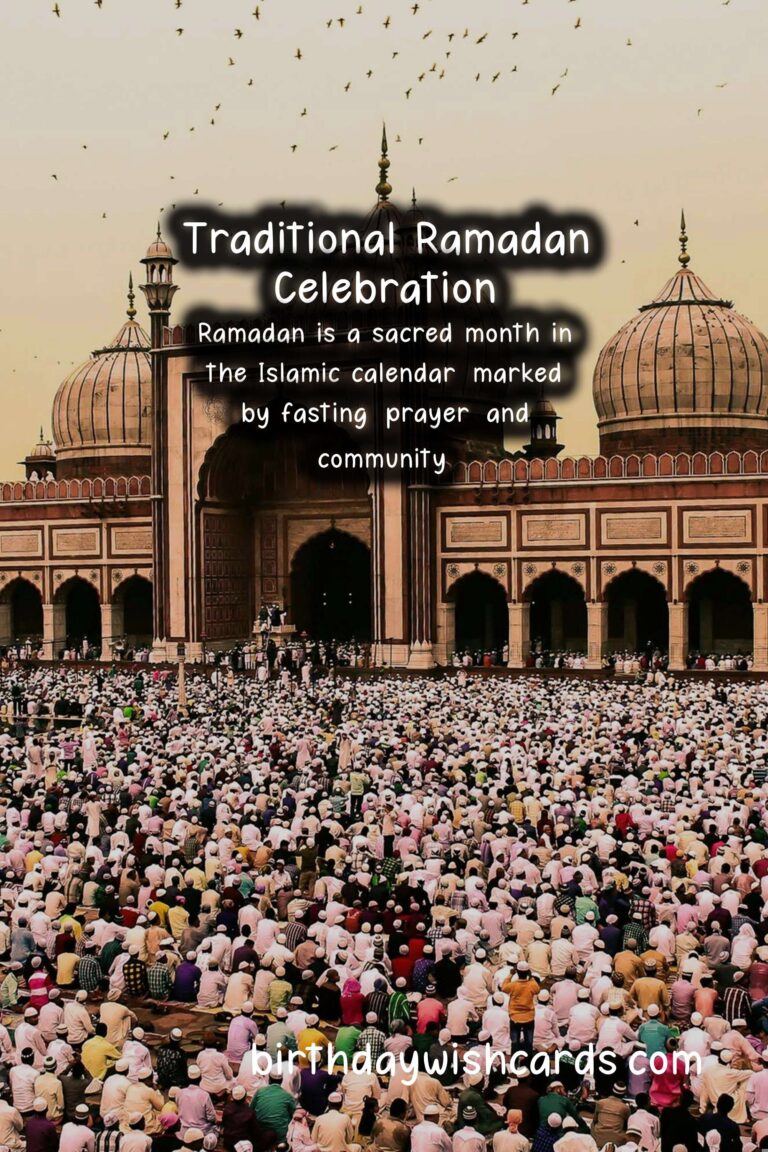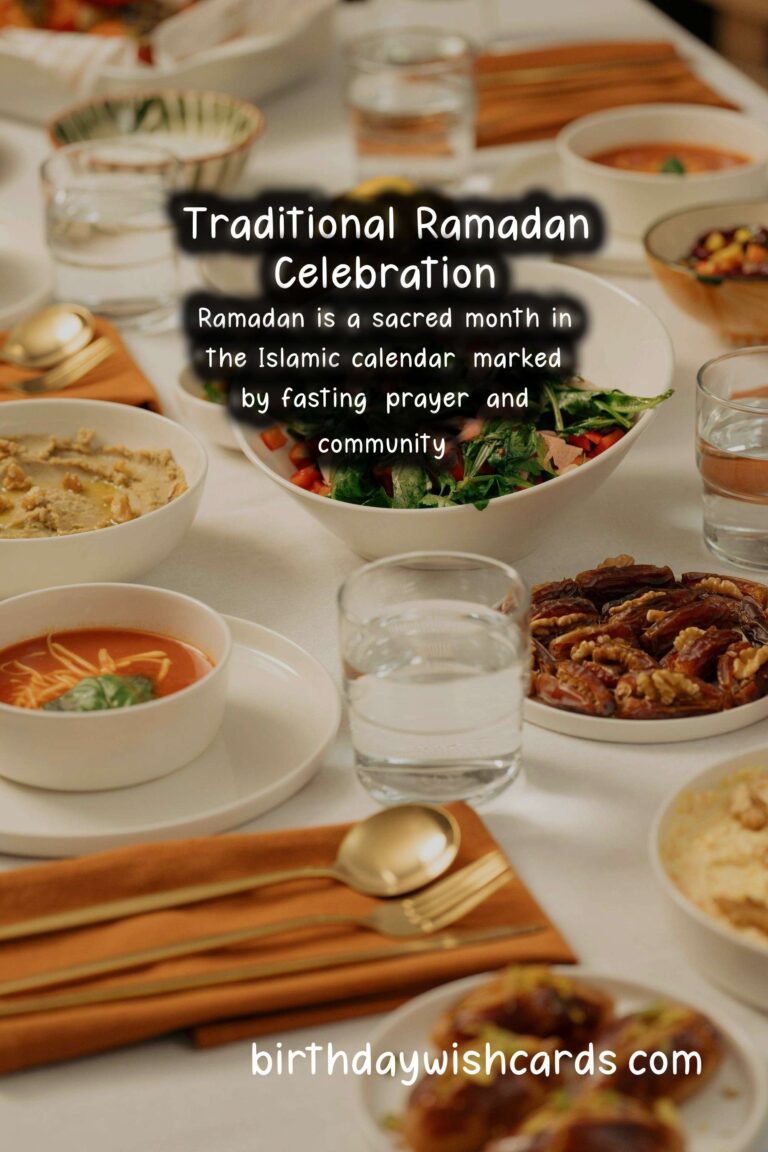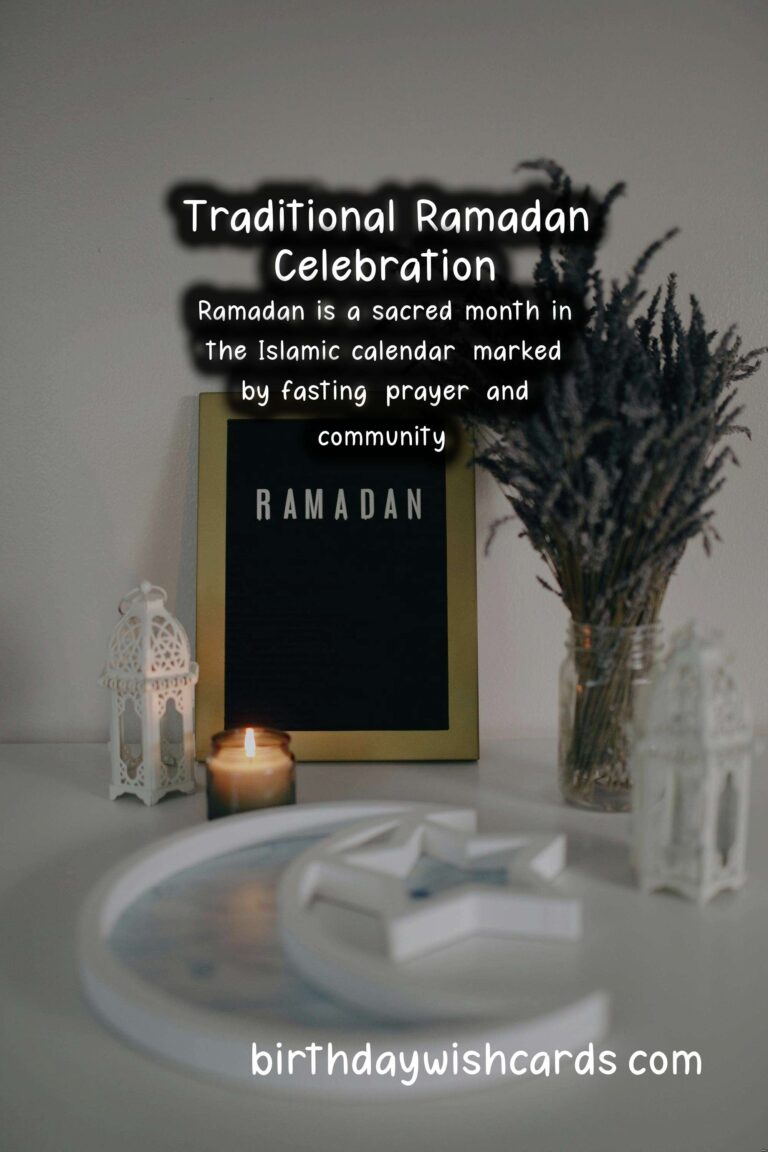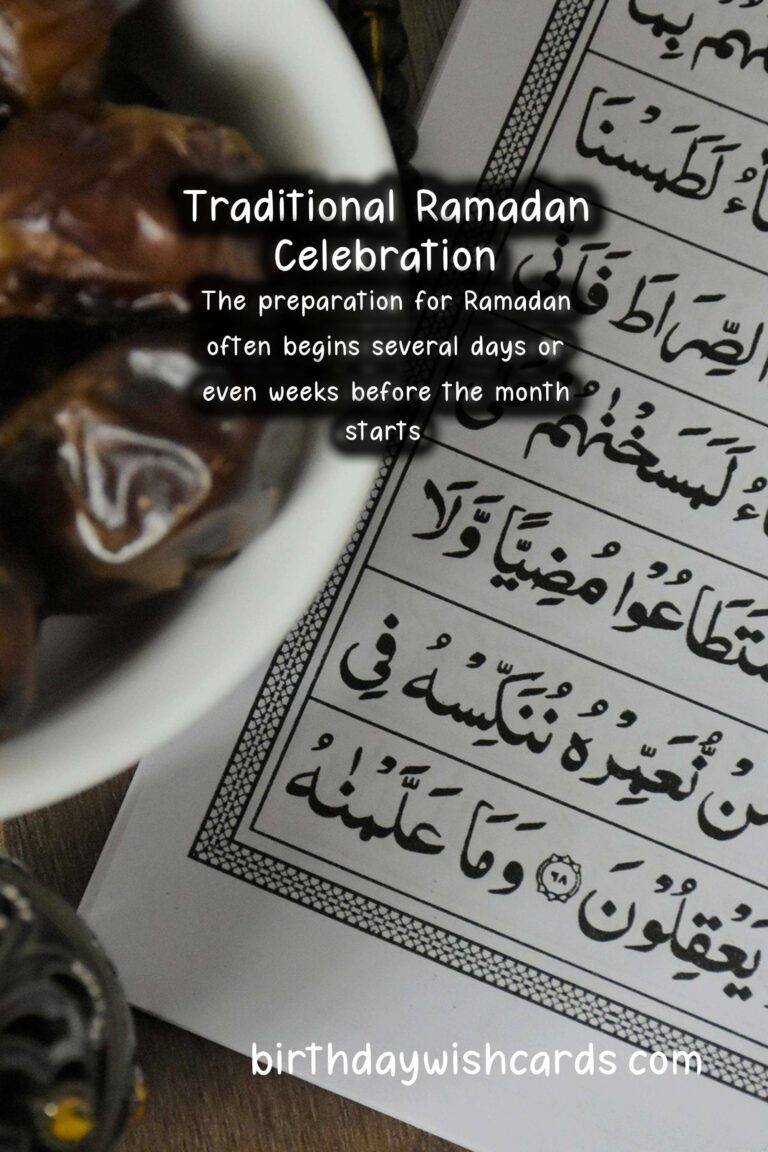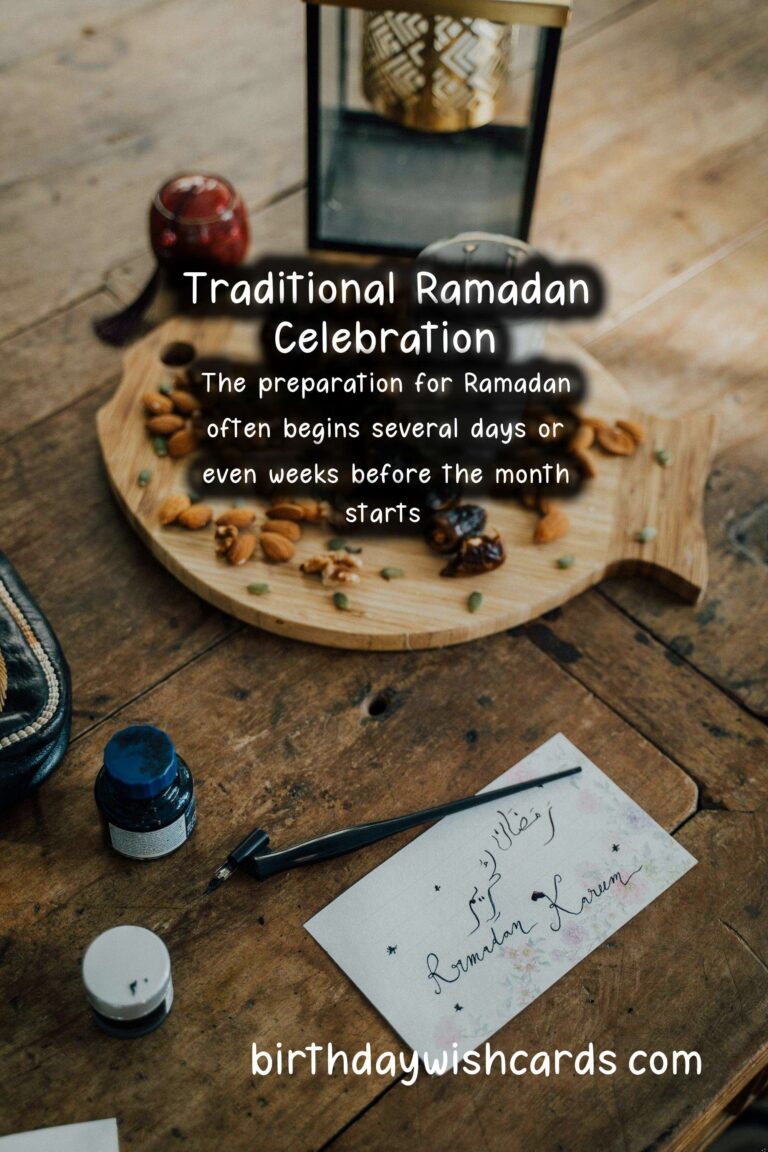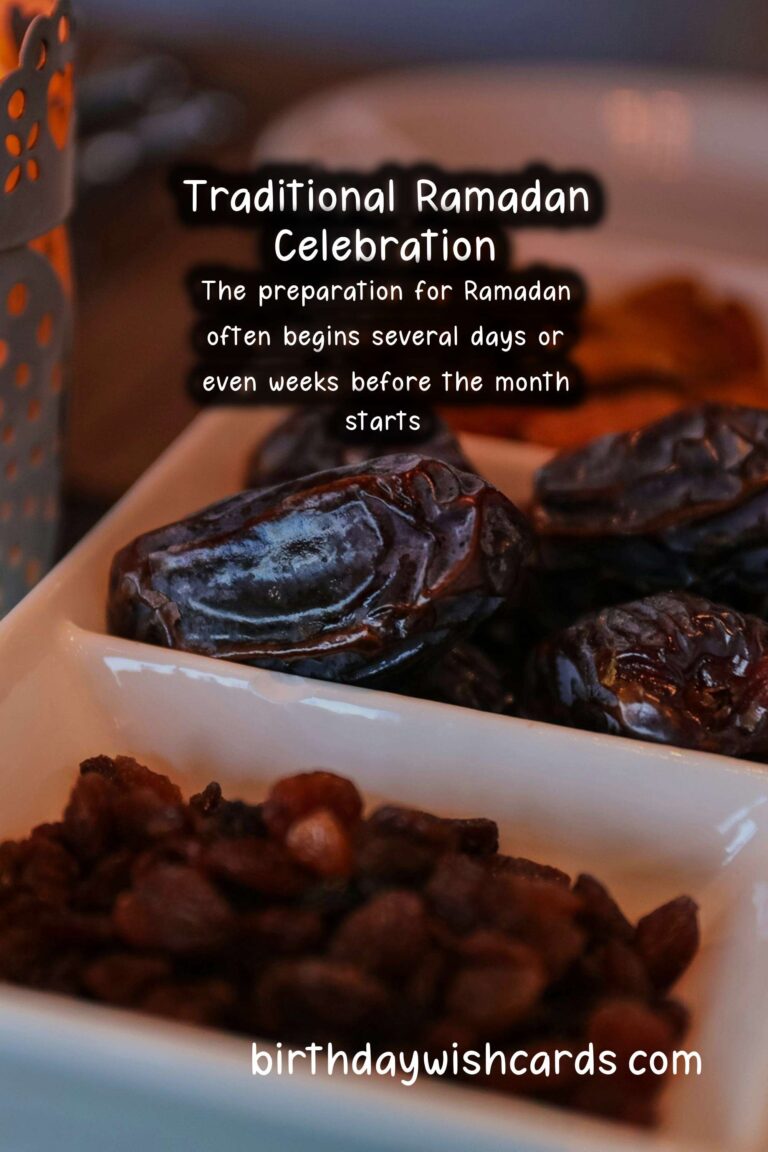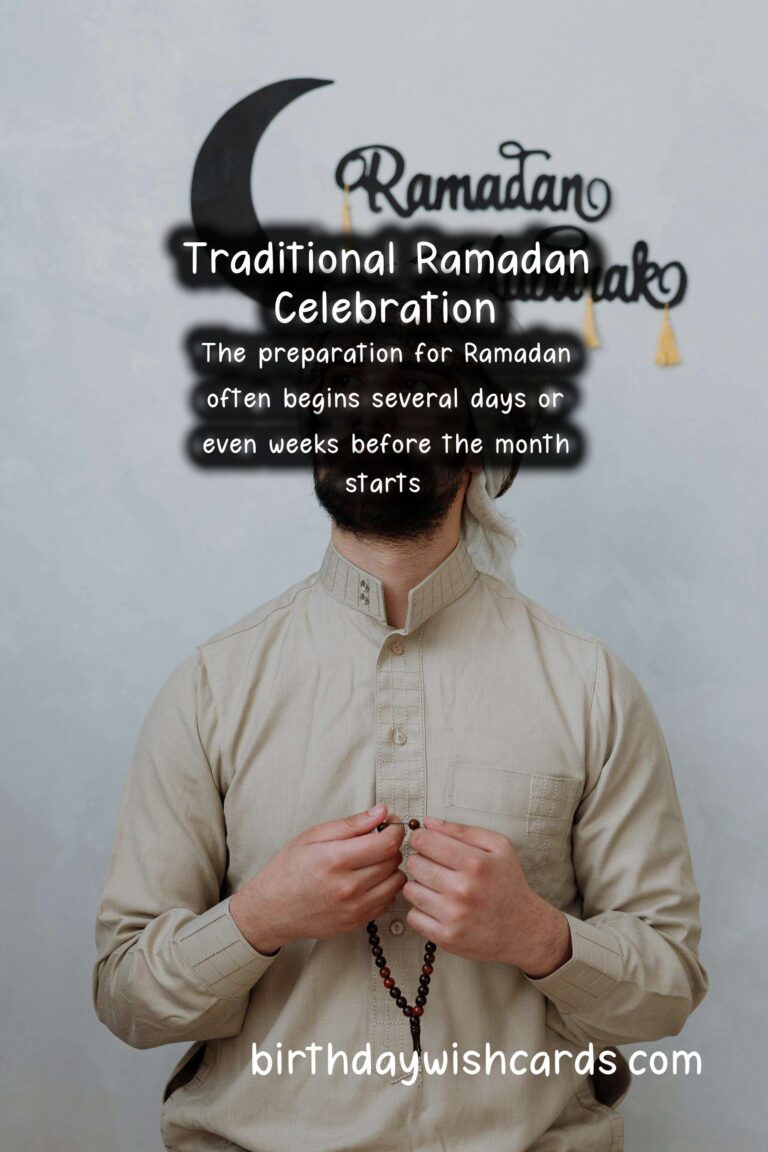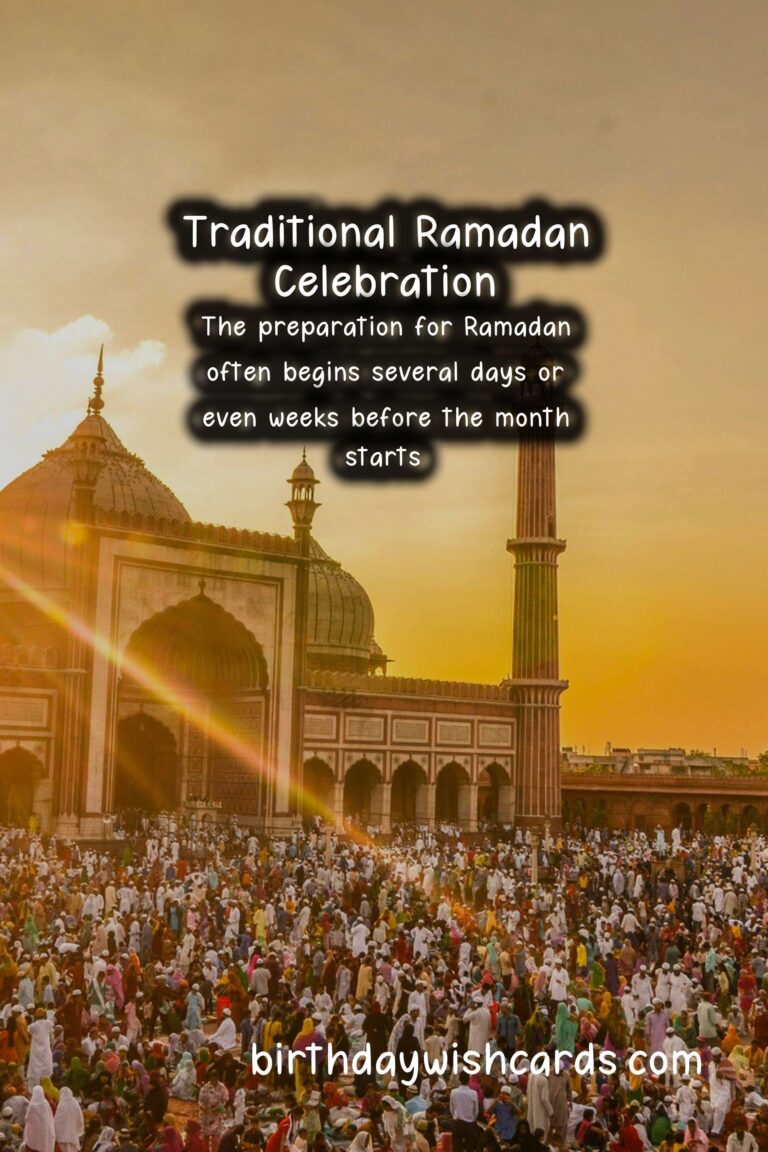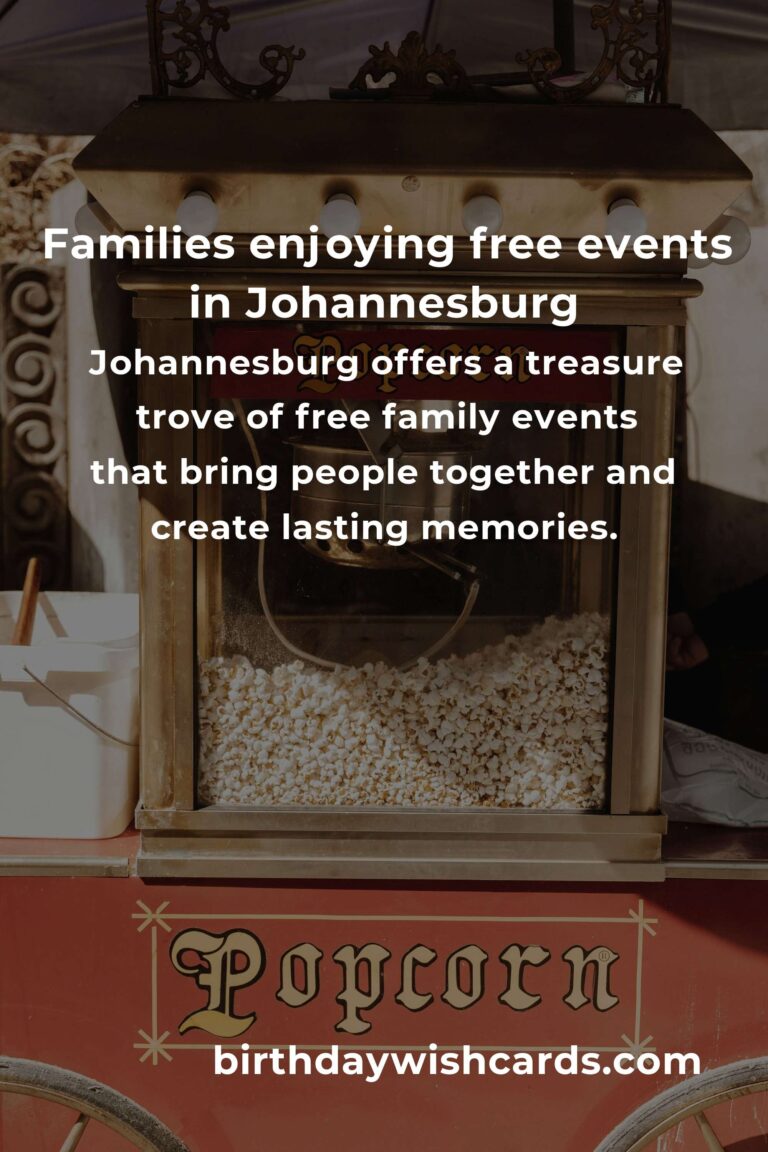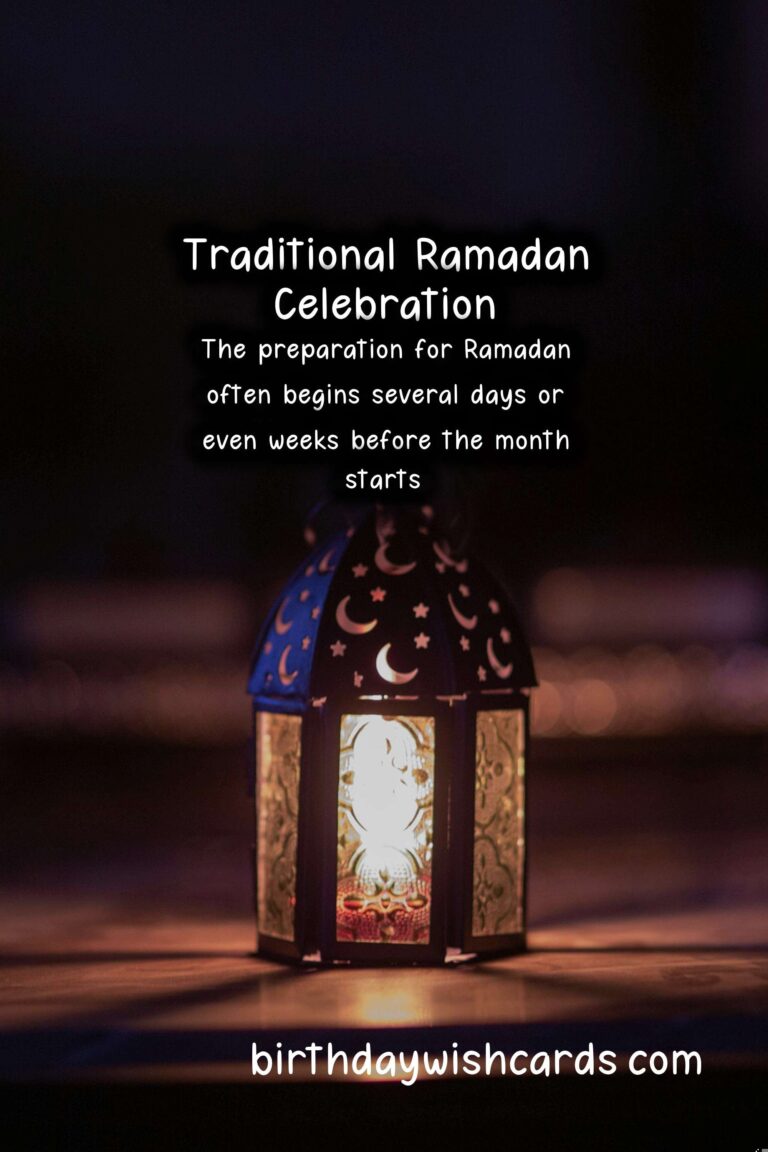
Ramadan is a sacred month in the Islamic calendar, marked by fasting, prayer, and community. The ways people celebrate Ramadan can vary greatly depending on cultural backgrounds and traditions. In this article, we will explore various traditional methods of celebrating Ramadan that not only honor the spiritual significance of the month but also foster community bonding and family togetherness.
Understanding Ramadan
Before we delve into the traditions associated with Ramadan, it’s essential to understand its significance. Ramadan is the ninth month of the Islamic lunar calendar and is celebrated by Muslims around the world. It commemorates the month in which the Quran was revealed to the Prophet Muhammad. The month is characterized by fasting from dawn until sunset, engaging in increased prayer, and acts of charity.
Preparing for Ramadan
The preparation for Ramadan often begins several days or even weeks before the month starts. Families clean their homes, repair any broken items, and decorate their living spaces. These preparations serve to create a joyous atmosphere to welcome the holy month.
Shopping for Ramadan
Grocery shopping to stock up on essential items is paramount in preparing for Ramadan. Traditional foods vary by region but often include dates, milk, and an array of fruits to break the fast. Many families look forward to preparing special dishes that reflect their cultural heritage.
Fasting During Ramadan
Fasting is the most well-known practice of Ramadan. It involves abstaining from food, drink, and other physical needs during daylight hours. The fast is broken each day at sunset, typically with dates and water, followed by a larger meal known as Iftar.
Breaking the Fast – Iftar
Iftar meals are often communal and shared with family, friends, and neighbors. Many communities organize Iftar gatherings where everyone can come together to break their fast. Traditional dishes served during Iftar vary widely, reflecting local customs.
Common Iftar Dishes
Some traditional Iftar items include:
- Dates and water
- Soup (like lentil or chicken soup)
- Salads (fattoush or tabbouleh)
- Main courses (biryani, kebabs, etc.)
- Desserts (baklava, kunafa)
Spiritual Practices
During Ramadan, Muslims engage in spiritual practices such as reading the Quran, performing additional prayers (Taraweeh), and making supplications (Dua). These practices are meant to deepen the spiritual connection to God and foster self-discipline.
Reading the Quran
Many Muslims aim to complete the Quran during Ramadan. Reciting and reflecting on its teachings is a central part of spiritual growth during this period.
Performing Extra Prayers
Taraweeh prayers are special prayers performed at night during Ramadan. These prayers can be done individually or as a congregation at local mosques. Participation in these prayers is a way to enhance one’s connection with the community and the divine.
Acts of Charity
Charity (Zakat) is a crucial element of Ramadan. It is a time when Muslims are encouraged to give generously to those in need. Many people choose to give Zakat, which is a mandatory form of charity, while others also engage in additional voluntary acts of giving.
Community Service
Many individuals and organizations take part in community service projects during Ramadan. These can include food drives, fundraising for various causes, and volunteering at soup kitchens. Serving the community enhances the spirit of Ramadan and reflects its core values.
Cultural Celebrations
Many cultures have unique ways of celebrating Ramadan, often infusing local traditions into their religious observances. It is common for families to host Ramadan gatherings with traditional music, storytelling, and communal meals.
Festive Decorations
Homes and public spaces are often adorned with beautiful decorations that symbolize the joy of Ramadan. Lanterns, lights, and decorative banners are commonly used to create an inviting atmosphere.
Eid al-Fitr – The Celebration After Ramadan
The culmination of Ramadan is marked by Eid al-Fitr, a festive holiday that celebrates the end of fasting. The day begins with a special prayer service at the mosque, followed by festive meals and celebrations with family and friends.
Eid Traditions
Traditions around Eid al-Fitr can vary significantly:
- Wearing new or special clothes for the day
- Giving gifts, especially to children
- Preparing special meals
- Visiting the graves of loved ones to pray for their souls
Conclusion
Celebrating Ramadan the traditional way involves a blend of spiritual devotion, family bonding, and community engagement. By embracing the customs passed down through generations, individuals can find a deeper connection to their faith and to one another during this holy month. No matter where one is in the world, these traditions aim to foster a sense of unity and reverence as Muslims commemorate their faith during Ramadan.
Ramadan is a sacred month in the Islamic calendar, marked by fasting, prayer, and community. The preparation for Ramadan often begins several days or even weeks before the month starts. 
